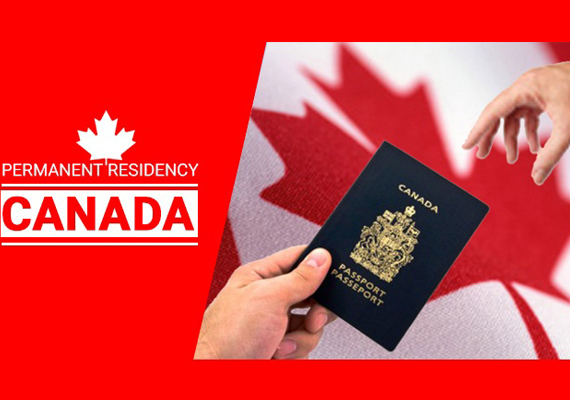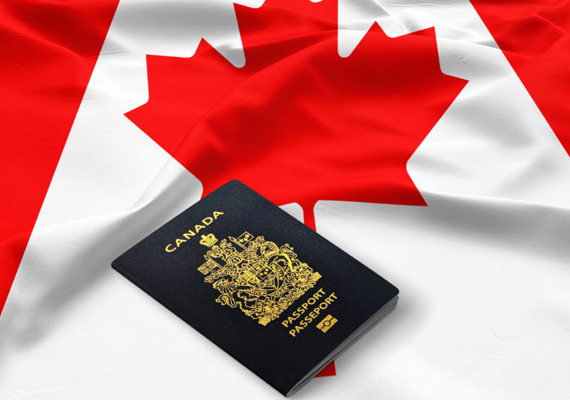
What is permanent residence status in Canada?
Permanent residence status in Canada allows individuals to reside, work, or study anywhere in the country indefinitely. This legal status affords many of the same benefits as Canadian citizens, such as access to healthcare, education, and social services. However, permanent residents cannot vote for or hold specific government positions in federal elections. Obtaining permanent residence is often done through immigration programs like Express Entry, family sponsorship, or provincial nominee programs, marking a significant milestone toward Canadian citizenship.
What are the different pathways to obtaining permanent residence in Canada?
The Express Entry System is like a scoring system for people applying to move to Canada through three different work programs: one for skilled workers, one for skilled tradespeople, and one for those with Canadian work experience.
The Provincial Nominee Program (PNP) allows each province and territory in Canada, except Quebec, to pick people they want to come live and work there. They choose individuals based on what jobs they need to fill and what skills they’re looking for.
Through family sponsorship, citizens and permanent residents of Canada can support the immigration of their spouses, common-law partners, parents, grandparents, and dependent children.
Quebec Immigration operates its own immigration programs and eligibility criteria. Individuals seeking to reside in Quebec must apply through the Quebec Skilled Worker Program or other immigration pathways tailored to the province’s unique requirements.
Can I apply for permanent residence as a skilled worker?
Yes, you can easily apply for permanent residence in Canada as a skilled worker through various immigration programs. The Federal Skilled Worker Program (FSWP) is one of the best pathways for skilled workers to obtain permanent residence.
h2>What is FSWP?
The FSWP, or Federal Skilled Worker Program, is a component of Canada’s Express Entry system, which constitutes one of the key federal economic immigration pathways. The FSWP is designed for skilled workers with the education, work experience, language proficiency, and other factors required to contribute to Canada’s economy.
Under the FSWP, eligible candidates create an Express Entry profile and are ranked based on a Comprehensive Ranking System (CRS). Those with high CRS scores may receive an Invitation to Apply (ITA) for permanent residence in Canada.
The FSWP assesses candidates based on education, work experience, English and French language abilities, age, arranged employment in Canada, and adaptability factors. Candidates must meet minimum eligibility requirements in these areas to qualify for the FSWP. Once selected, applicants can apply for permanent residence, undergo medical examinations and security checks, and, if approved, become Canadian permanent residents.
 <
<
Is it necessary to show the funds for Permanent residence?
It depends on the specific immigration program. In many cases, particularly for permanent residency (PR) applications, you may need to show sufficient funds to support yourself and your family while settling in the country. This is to ensure that you won’t become a burden on the social welfare system of the country you’re immigrating to.
The prerequisites can differ significantly based on the size of your family and the specific visa category you’re applying for. It’s crucial to thoroughly review the particular requirements of the immigration program you’re interested in to ensure compliance with all necessary criteria.
Validity for PR card.
The Permanent Resident (PR) Card is typically valid for five years in Canada. However, the validity period may vary depending on the individual’s specific circumstances.
To uphold your permanent resident status in Canada, you must meet the residency obligation, meaning that you must be physically present in Canada for at least two years within a consecutive 5-year period.
It doesn’t necessarily mean you lose your permanent resident status if you don’t meet the residency obligation or if your PR card expires. You may still be able to renew your PR card or apply for a travel document to return to Canada if you’re outside the country.
It’s mandatory to keep track of the expiration date of your PR card and take the necessary steps to renew it before it expires to avoid any complications with your immigration status in Canada.
ELIGIBILITY FOR PR CARD RENEWAL
To be eligible for renewal of a Permanent Resident (PR) Card in Canada, you typically need to meet the following criteria:
- Residency Requirement: You must have met the residency obligation, which generally means you must have been physically present in Canada for a minimum of 730 days, equivalent to 2 years, within the last five years. If you have been living outside Canada for an extended period, you may need to provide evidence of ties to Canada or exceptional circumstances that prevented you from meeting the residency requirement.
- Valid PR Status: Your permanent resident status must still be good. If your status has expired or been revoked, you must address those issues before applying for a PR card renewal.
- No Unfulfilled Conditions: You must not be subject to any unfulfilled conditions related to your permanent resident status, such as conditions imposed upon landing in Canada.
- No Criminal Convictions or Immigration Violations: You must have no criminal convictions or immigration violations. That would render you inadmissible to Canada.
- Application Fee: You must pay the applicable fee for the PR card renewal.
- Submission of Required Documents: You must submit a complete application package, including any required supporting documents, photographs, and forms, per the instructions provided by Immigration, Refugees, and Citizenship Canada (IRCC).
To renew it, it is crucial to make sure you go through the requirements and instructions provided by IRCC. Make sure you meet all the eligibility criteria and submit an accurate application if you are still determining any aspect of the process.

What is the benefit of permanent residence in Canada
Obtaining permanent residence in Canada offers several advantages:
Right to Live and Work:
Permanent residents in Canada enjoy virtually all the same rights and privileges as Canadian citizens, except the ability to vote and eligibility for specific governmental roles.
Access to Social Services: Permanent residents are eligible for various social benefits, including healthcare coverage through Canada’s publicly funded healthcare system, education benefits, and social assistance programs.
Pathway to Citizenship: Permanent residency is often a pathway to Canadian citizenship. After meeting specific residency requirements, permanent residents can apply for citizenship, which grants additional rights, such as the ability to vote and obtain a Canadian passport.
Protection under Canadian Law: Permanent residents are safe and benefit from the country’s legal system, which upholds fundamental rights and freedoms.
Protection under Canadian Law: Permanent residents are safe and benefit from the country’s legal system, which upholds fundamental rights and freedoms.
Employment Opportunities: Permanent residency may enhance employment opportunities in Canada. Some employers prefer to hire individuals with permanent resident status because it signifies a commitment to living and contributing to the country long-term.
Family Sponsorship: After getting permanent residents, they can sponsor their family members to come to Canada as permanent residents, facilitating reunification with loved ones.
Travel Benefits: Permanent residents can travel in and out of Canada more freely than temporary residents.
Overall, permanent residency in Canada provides stability, security, and opportunities for individuals and their families to build a better future.





 503 Ray Lawson Blvd, Unit-9, Brampton, ON L6Y 0N2, Canada
503 Ray Lawson Blvd, Unit-9, Brampton, ON L6Y 0N2, Canada